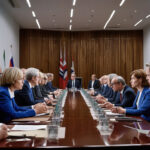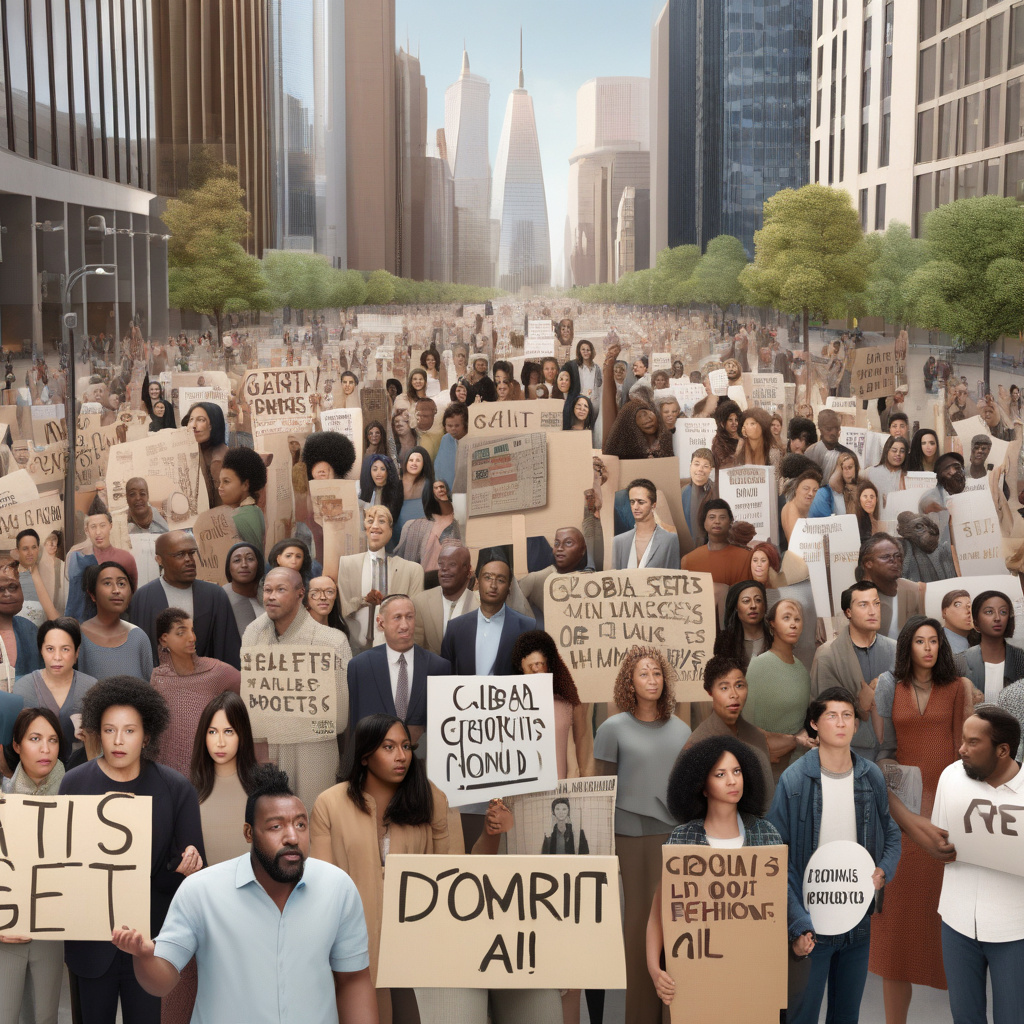Global Call Grows for Limits on Risky AI Uses
Nobel laureates and AI pioneers have recently joined forces to advocate for the establishment of clear boundaries when it comes to the application of artificial intelligence (AI). The growing concern over the potential risks associated with the unchecked development and deployment of AI technologies has prompted these influential figures to push for global action to regulate and limit its more controversial uses.
One of the key issues that have sparked this call for action is the fear of AI being used for malicious purposes, such as autonomous weapons or mass surveillance. The idea of giving machines the power to make life-and-death decisions or invade individuals’ privacy without proper oversight is a chilling prospect that has prompted many experts to speak out against such uses of AI.
Furthermore, the rapid advancement of AI technologies has outpaced the development of regulatory frameworks to govern their use responsibly. Without clear guidelines in place, there is a risk that AI systems could perpetuate and even amplify existing societal biases, leading to unfair discrimination or exacerbating social inequalities.
The involvement of Nobel laureates and AI pioneers in this movement adds significant weight to the call for action. These individuals, who have been at the forefront of technological innovation and scientific research, bring with them a wealth of experience and expertise that highlights the urgency of addressing the risks posed by unchecked AI development.
For instance, Yoshua Bengio, a pioneer in the field of deep learning and a recipient of the Turing Award, has been vocal about the need for AI researchers and developers to prioritize ethical considerations in their work. By advocating for transparency, accountability, and fairness in AI systems, Bengio and others aim to ensure that these technologies are used for the benefit of society as a whole.
Similarly, Nobel laureate Frances Arnold has emphasized the importance of integrating ethical principles into the design and implementation of AI technologies. By fostering a culture of responsible innovation, Arnold believes that it is possible to harness the potential of AI while minimizing the associated risks.
The call for limits on risky AI uses is not about stifling innovation or hindering progress. On the contrary, it is about fostering a sustainable and inclusive approach to AI development that prioritizes the well-being of individuals and communities. By setting clear red lines on the application of AI in sensitive areas such as healthcare, criminal justice, and finance, we can ensure that these technologies are deployed in a manner that is safe, ethical, and beneficial for all.
As the global movement for AI regulation continues to gain momentum, it is clear that the voices of Nobel laureates and AI pioneers will play a crucial role in shaping the future of this rapidly evolving field. By working together to establish common standards and guidelines, we can pave the way for a more responsible and accountable use of AI that maximizes its potential to drive positive change in the world.
In conclusion, the call for limits on risky AI uses reflects a growing recognition of the need to balance innovation with ethical considerations. By heeding the advice of experts and thought leaders in the field, we can ensure that AI technologies serve as a force for good in society, rather than a source of harm or division.
Nobel Laureates, AI Pioneers, Red Lines, Ethical AI, Responsible Innovation












